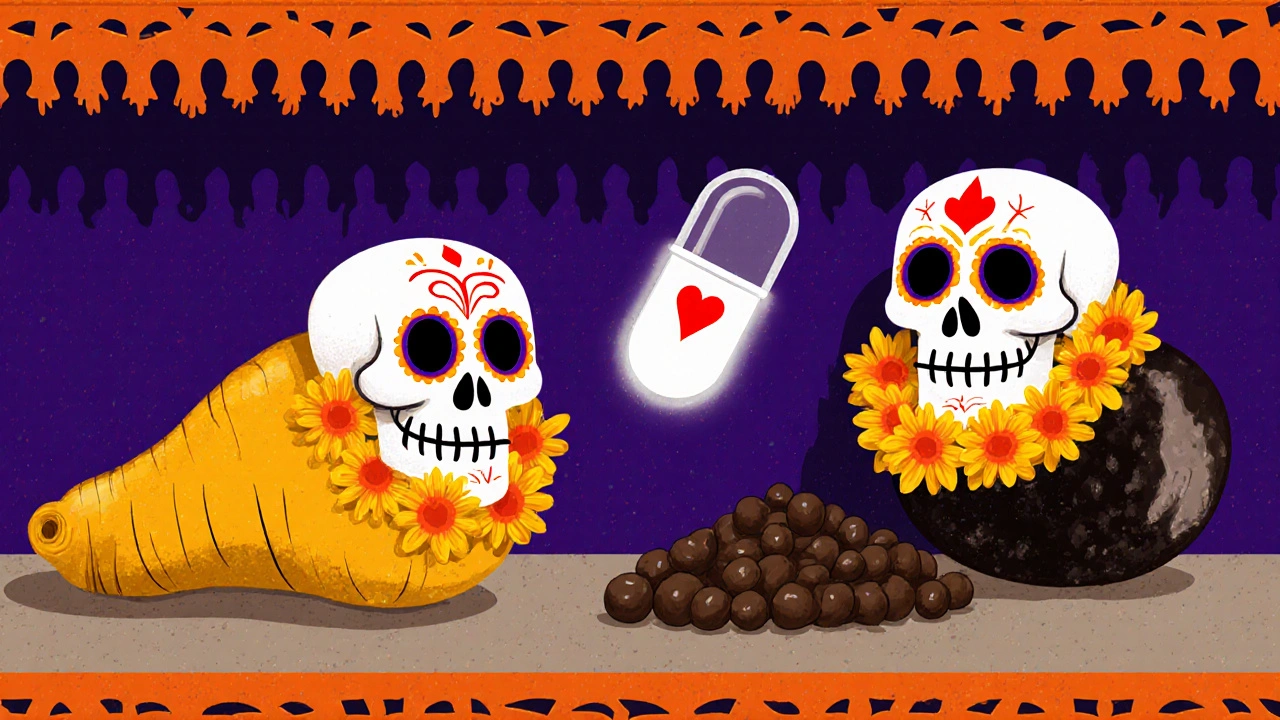Warfarin and Turmeric Risk: What You Need to Know
When you take warfarin, a blood thinner used to prevent dangerous clots in people with atrial fibrillation, deep vein thrombosis, or after heart valve surgery. Also known as Coumadin, it works by blocking vitamin K, which your body needs to form clots. Many people turn to turmeric, a spice rich in curcumin, often used for its anti-inflammatory properties in arthritis and joint pain as a natural remedy. But mixing turmeric with warfarin isn’t harmless—it can push your blood too thin, leading to serious bleeding.
Studies show curcumin in turmeric has mild anticoagulant effects on its own. When added to warfarin, it doesn’t just add up—it multiplies the risk. People on warfarin who start taking turmeric supplements have reported nosebleeds, bruising easily, blood in urine, or even internal bleeding after minor injuries. One 2020 case study in a clinical journal described a 68-year-old man who developed a dangerous brain bleed after adding turmeric capsules to his daily routine. He wasn’t told it could interact with his medication.
It’s not just supplements. Eating large amounts of turmeric in curry or golden milk every day can also be risky if you’re on warfarin. The problem isn’t the spice itself—it’s the concentrated doses in pills, powders, or extracts. Your doctor checks your INR level regularly to make sure your blood isn’t clotting too fast or too slow. Turmeric can throw that balance off without you noticing until it’s too late.
Other herbs like garlic, ginger, ginkgo, and green tea can do the same thing. But turmeric is one of the most popular ones people take without asking their doctor. If you’re on warfarin, you need to treat turmeric like a drug—not a harmless seasoning. Even if you’ve been taking it for years, a sudden change in dose can trigger a reaction.
What should you do? Talk to your pharmacist or doctor before adding any supplement. Keep a list of everything you take, including vitamins and herbal products. If you’ve already started turmeric, don’t quit cold turkey—your doctor may need to adjust your warfarin dose. And if you notice unusual bruising, bleeding gums, or dark stools, get checked right away.
The bottom line: warfarin saves lives, but it’s not compatible with every natural remedy. Turmeric might help with inflammation, but not if it puts you in the hospital. Your health isn’t a trade-off between natural and pharmaceutical—it’s about knowing what works safely together.
Below, you’ll find real-world comparisons and expert-backed guides on how other medications interact with supplements, what to watch for, and how to manage your treatment without risking your safety.
- Archer Pennington
- 9
Turmeric & Black Pepper with Blood Thinners: Risks & Safety Tips
Turmeric and black pepper supplements can drastically boost curcumin absorption, raising the risk of dangerous bleeding for anyone on blood thinners. Learn the science, guidelines, and safe practices to protect yourself.
Read more
